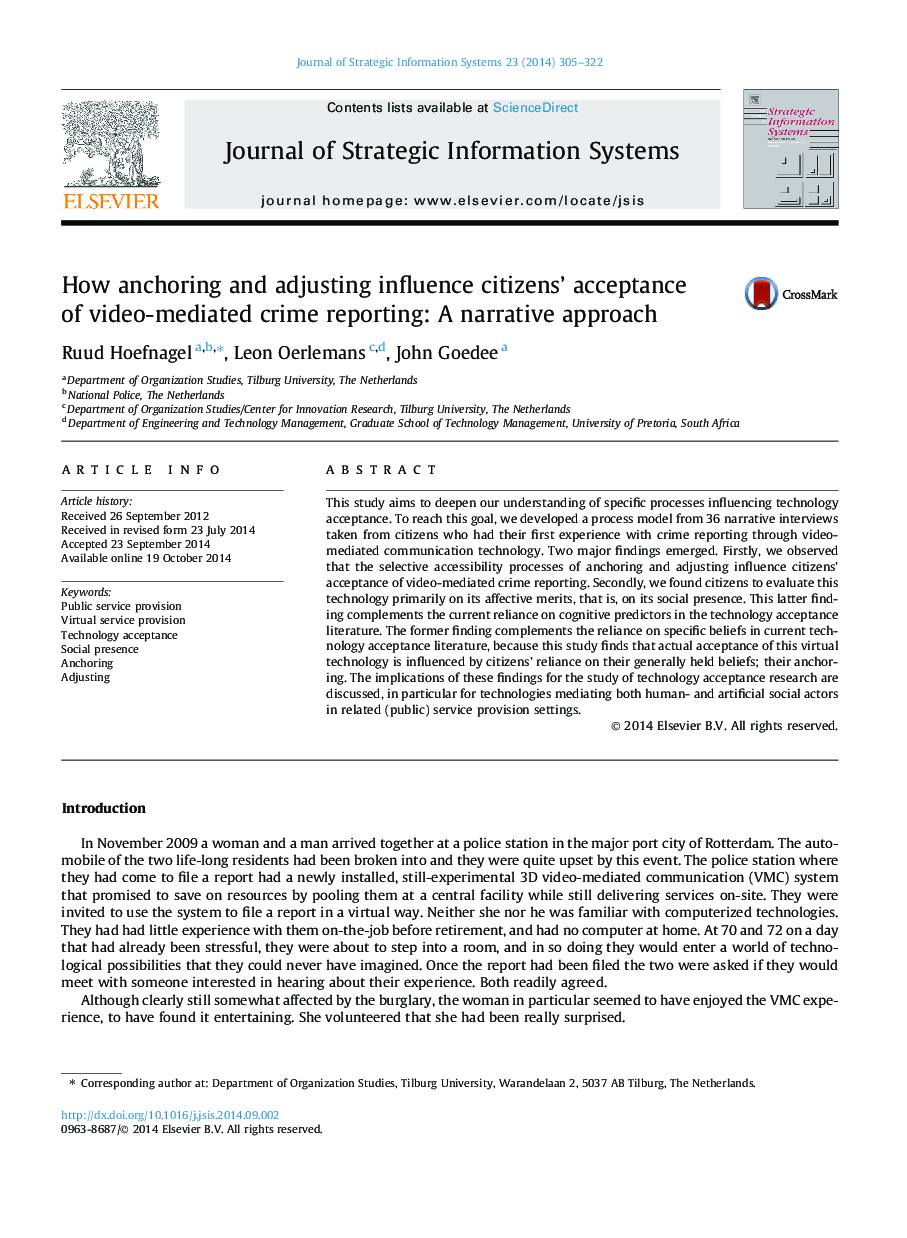| Article ID | Journal | Published Year | Pages | File Type |
|---|---|---|---|---|
| 557751 | The Journal of Strategic Information Systems | 2014 | 18 Pages |
•Describes formation of technology acceptance judgments about virtual crime reporting.•Proposes a process model for technology acceptance using anchoring and adjusting.•Complements technology acceptance research’s reliance on specific beliefs & cognition.
This study aims to deepen our understanding of specific processes influencing technology acceptance. To reach this goal, we developed a process model from 36 narrative interviews taken from citizens who had their first experience with crime reporting through video-mediated communication technology. Two major findings emerged. Firstly, we observed that the selective accessibility processes of anchoring and adjusting influence citizens’ acceptance of video-mediated crime reporting. Secondly, we found citizens to evaluate this technology primarily on its affective merits, that is, on its social presence. This latter finding complements the current reliance on cognitive predictors in the technology acceptance literature. The former finding complements the reliance on specific beliefs in current technology acceptance literature, because this study finds that actual acceptance of this virtual technology is influenced by citizens’ reliance on their generally held beliefs; their anchoring. The implications of these findings for the study of technology acceptance research are discussed, in particular for technologies mediating both human- and artificial social actors in related (public) service provision settings.
